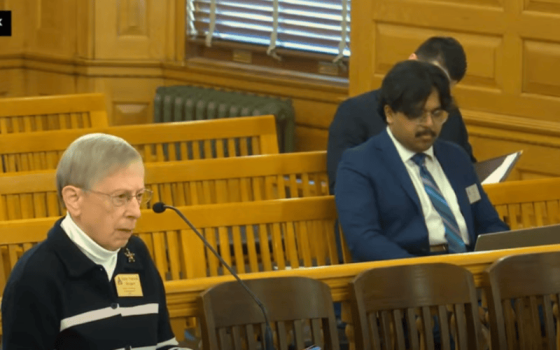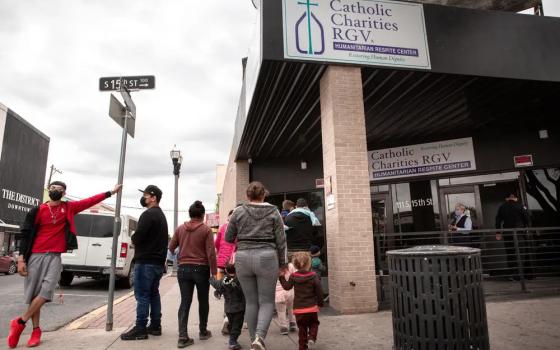
SALTILLO, Mexico -- Migrant worker Carlos Vasquez's journey through Mexico to find work in the United States has posed one danger after another.
The Honduran was been robbed and assaulted almost immediately after crossing into Mexico from Guatemala. Not long after he was hauled away at gunpoint from the railway line near the Mayan ruins at Palenque and taken to hotel room full of other kidnapped migrants in Villahermosa, Tabasco.
"I knew that I was going to die there," Vasquez recalled in late March, while resting at the Belen Inn of the Migrants shelter in Saltillo in northern Mexico.
"I thought, 'I have to escape.' Thanks to God, I had the opportunity," he said.
Vasquez bolted from the hotel when his guard stepped out for a cigarette.
Migrants such as Vasquez frequently fall into the hands of kidnappers as they transit Mexico on their way to the United States. The Mexican National Human Rights Commission reported 11,333 migrants were kidnapped over a six-month period in 2010 as organized criminal groups -- frequently abetted by corrupt cops and public officials -- abduct Central Americans and demand ransoms from the victims' relatives.
Vasquez suspects the criminal gang Los Zetas was responsible for his abduction. What became of the other abductees remains a mystery.
"I would imagine that they were killed," Vasquez said.
"After someone pays, they're killed so that they don't go to the police," he said.
Vasquez's mother back in Copan Ruinas, Honduras, somehow borrowed $2,000 and wired the ransom money to Mexico, not knowing her son's exact condition or whereabouts. The money covered approximately half the ransom, Vasquez said. A brother living in Florida planned to wire another $2,000, but Vasquez managed to escape.
The Honduran tried calling the police when he escaped, but no one responded. He continued his northward journey, dodging another kidnapping attempt in Veracruz state and making it to Saltillo, some 200 miles from the U.S. border.
Vasquez, 26, previously headed north as a 15-year-old and worked in Austin, Texas, for eight years before being deported. He saw no economic prospects in Honduras so he headed north again despite knowing the risks that the 1,200-mile transit across Mexico posed. Now he has another reason to continue with his trip.
"I can't return to Honduras until I repay this money," Vasquez said.




